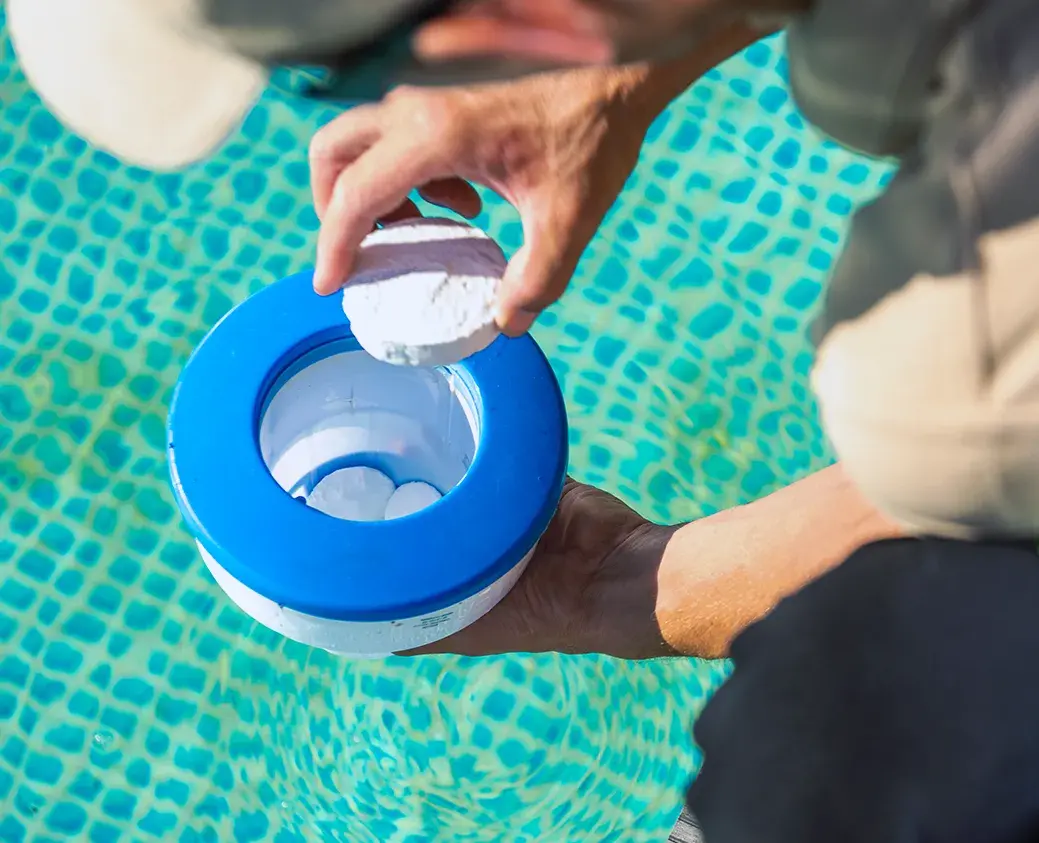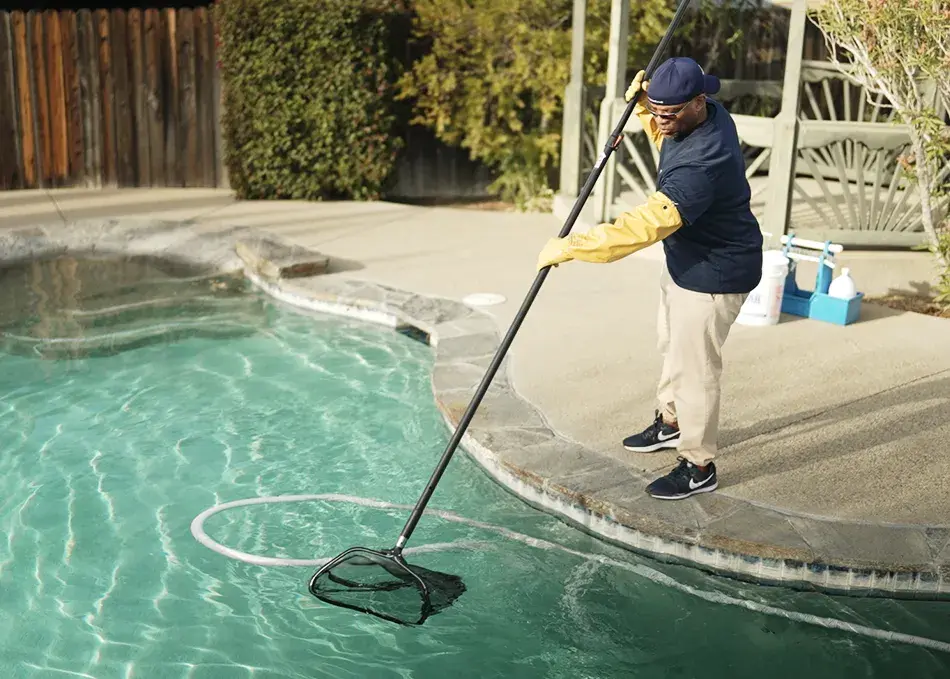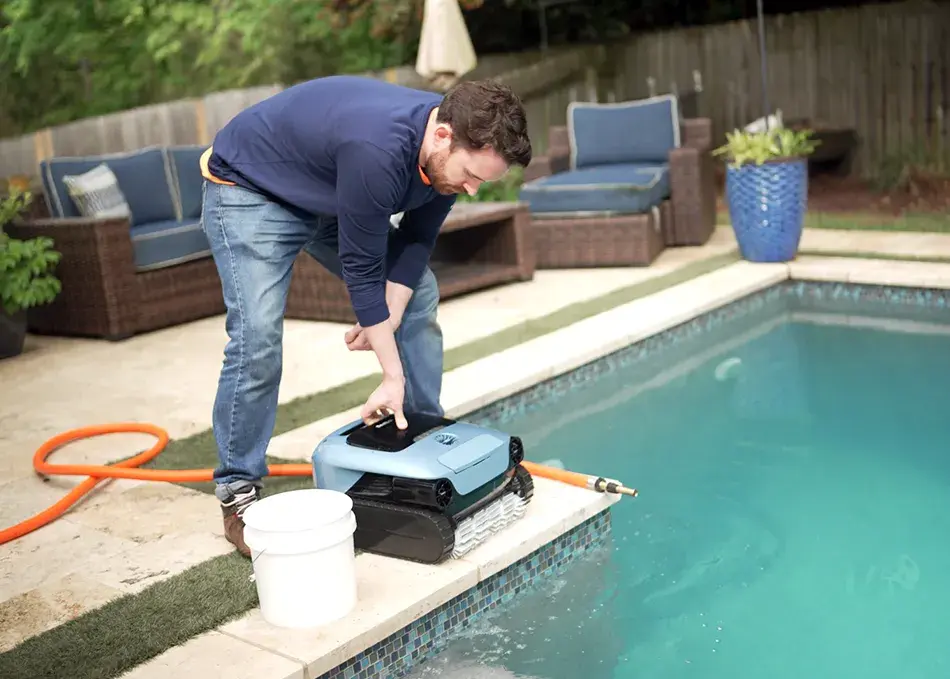Terry Arko Guests on the Pool Guy Podcast Show
HASA’s resident pool water treatment expert, Terry Arko, recently joined the Pool Guy Podcast Show to discuss why HASA’s Liquid Chlorine...
⬢ Pool Professionals
Professional-grade products. Expert support. Built for your business.
⬢ Pool Owners
Eco-friendly, easy-to-use solutions to keep your pool clean and clear.
⬢ Industrial
Efficient treatment & supply. Performance-focused operations support.
⬢ Municipal
Reliable solutions & delivery. Sustainable treatment for public systems.
⬢ Dealers
Help your pool & spa customers with trusted, professional-grade products.
⬢ Pool Products
HASA has the chlorine, algaecides, and sanitizers you need to keep your pool or spa clean and clear.
⬢ Hot Tub Products
Shop our full line of Hi-Temp spa care products, including Eco-Safe Clarifiers and pH Increasers.
⬢ Ancillary Products
Our eco-friendly water treatments are science-backed and purposefully focused.
⬢ Mini-Bulk Program
We deliver a premium 12.5% sodium hypochlorite solution for sanitizing commercial pools and large-scale water systems.
⬢ Blog
Learn from water chemistry experts.
⬢ Videos
Browse instructional how-to videos.
⬢ Safety Data Sheets
Download SDS sheets for HASA products.
⬢ Pool Chemical Calculator
Achieve balanced chemistry easily.
⬢ Liquid Chlorine For Pools
A service professional’s guide that's been made simple.
⬢ Orenda Academy
For water chemistry & professional pool management knowledge.
⬢ Events
Find HASA at an event near you.
⬢ Rewards
Explore our HASA loyalty rewards program.
⬢ About HASA
Learn about HASA's commitment via the returnable packaging model.
⬢ Careers
Explore open positions with HASA.

Maintaining optimal water quality is the heart of professional pool service. The discussion about chlorine tablets versus liquid delivery is growing. This happens with every service call, new pool installation, or difficult question from customers. The choice between liquid chlorine and chlorine tablets is more than a preference; it shapes efficiency, cost, customer satisfaction, and ultimately, the reputation of any pool service business.
This guide is for pool service workers, water treatment experts, and city water managers. They know how important reliable sanitation is. We'll explore the fundamental differences in chemistry, usage, and operational impact between these two common forms.
On our journey, we will look at why liquid chlorine is better for commercial use. We will also discuss the problems with using tablets in tough situations. Finally, we will show why HASA’s liquid chlorine is the best choice for pools.
You'll gain actionable insights on:
Whether you’re reevaluating your sanitizer protocols, expanding your service routes, or looking for ways to elevate both water quality and customer experience, this guide will help you determine if liquid chlorine is better than tablets for your business.
Chlorine is the main way to protect against germs, algae, and organic matter in pools and recreational water. Its strong cleaning action breaks down bacteria and algae in the water. This keeps the water safe and clear.
When introduced to water, chlorine forms hypochlorous acid (HOCl), a potent sanitizer that disrupts and destroys microorganism cell walls. This reaction is highly effective at neutralizing harmful bacteria and inhibiting algae growth, making chlorine indispensable in pool care and municipal water treatment.
Sanitizer delivery methods impact chlorine effectiveness and water chemistry. Two primary options are:
Understanding these differences is essential, especially for pool professionals tasked with delivering effective, efficient, and compliant water treatment solutions.
For pool pros evaluating liquid chlorine or tablets, several operational distinctions shape both service quality and business efficiency. The categories below provide a structured comparison:
Liquid Chlorine Pros
Liquid Chlorine Cons
Chlorine Tablet Pros
Chlorine Tablet Cons
For deeper operational details and water chemistry outcomes, see The Advantages of Liquid Pool Sanitization Treatments.
Pool professionals demand solutions that deliver effective sanitation, streamline workflows, and minimize costly headaches. When considering the best liquid chlorine for pools, liquid sanitizers rise above stabilized tablets in several key areas.
Liquid chlorine works rapidly and can be evenly dispensed across any pool size, making it ideal for high-traffic commercial settings or urgent maintenance needs. Its immediate sanitizing action is particularly valuable for shock treatments or post-event remediation. Uniform dispersion, rapid availability, and compatibility using automatic dispensers translate to consistently reliable results.
Liquid chlorine supports environmental responsibility at scale. Bulk supply and reusable containers reduce packaging waste and the environmental impact associated with single-use plastics. Unlike tablets, liquid chlorine doesn’t contribute to residual cyanuric acid or calcium buildup, which means less frequent water draining and lower resource consumption.
Reputable suppliers like HASA feature 100% recyclable, returnable bottles and invest in sustainable logistics. For sustainability highlights, read about the chlorine liquid vs tablets eco impact.
Time is money for route service professionals. Liquid chlorine enables faster, more accurate delivery of sanitizer, optimizing staff time. By eliminating stabilizer buildup, it also means fewer interventions to dilute or “dump” pool water due to overstabilization. This improves both efficiency and customer pool uptime. Explore how to streamline your routes through bulk chlorinating liquid vs tablets purchasing strategies.
Despite their convenience, chlorine tablets can create hurdles for professional pool operators. Over time, these challenges can impact your bottom line and client satisfaction. Here’s what to consider in the chlorine tablets vs liquid debate:
Trichlor tablets introduce considerable cyanuric acid with every use, leading to accumulation that reduces sanitizing efficiency. High levels of CYA can require draining significant volumes of water to rebalance. Inefficient dissolution in skimmers or feeders can produce concentrated acid spots, damaging pool equipment and finishing. May cause bleaching of colored plaster, fiberglass and vinyl.
The slow, controlled release of tablets can become a liability in emergencies, such as post-contamination events or heavy pool usage. Delays in reaching shock chlorine levels may fail to quickly neutralize threats, risking compliance and customer safety. Unstabilized liquid chlorine is the best choice for rapid response to pool contamination events. www.cdc.gov/healthyswimming/response Over-Reliance on Stabilizers
Tablet-based methods create a dependency on stabilizer content. Excessive CYA interferes with chlorine’s germ-killing action, even when test strips show adequate chlorine levels. This over-reliance can ultimately undermine a pool’s entire sanitation system.
HASA’s Sani-Clor® sodium hypochlorite has set the industry standard for high-purity, fast-acting, and environmentally considerate pool sanitation for more than five decades. Here’s why it is widely regarded as the best liquid chlorine for pools:
For more on HASA’s high-performance pool sanitizers and sustainable practices, visit HASA recreational water treatments. Invest in the Best Liquid Chlorine Sanitizing Solution for Your Business
Choosing the right sanitizer impacts every aspect of your pool service operation—from water clarity and safety to cost control, compliance, and sustainability. After comparing liquid chlorine vs tablets across chemistry, operational agility, environmental footprint, and business value, the advantages of high-quality sodium hypochlorite are clear.
Summary of Key Points
For operational efficiency, eco-friendliness, and consistent pool clarity, bulk liquid chlorine stands out as the optimal commercial choice. HASA’s industry-leading products, sustainable packaging, and focus on long-term water safety deliver an unmatched solution for pool pros dedicated to reliability and excellence.
When it comes to the health of your clients and the efficiency of your operation, invest in the best liquid chlorine for pools. Explore HASA’s Sani-Clor® for your service with proven, responsible water treatment solutions. Discover what sets HASA Sani-Clor apart or learn more about programmatic pool care.

HASA’s resident pool water treatment expert, Terry Arko, recently joined the Pool Guy Podcast Show to discuss why HASA’s Liquid Chlorine...

Owning a pool should be about relaxation, not constant weekend upkeep. With the right strategies, efficient routines, and high-quality products, easy...

5 Essential High-Tech Gadgets Advancements in pool technology have completely transformed the way we maintain, monitor, and enjoy swimming pools....